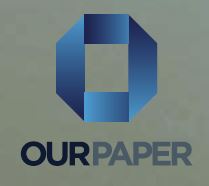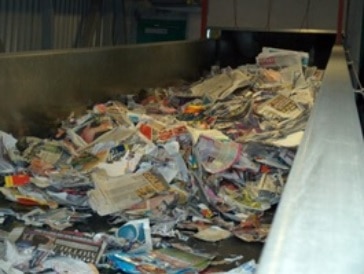EXCLUSIVE: Local authorities who collect paper for recycling in a commingled process are being warned by the UK’s paper industry that they may face financial risks and should consider a move to separate collection of paper at the kerbside.
Councils are advised by the paper industry that not just China, but other countries too such as Vietnam are restricting poor-quality materials and that they also don’t want “to become the next dumping ground for low quality mixed recycling”.
The warning comes from a newly established industry campaign group called ‘Our Paper’ which has been devised in partnership with the government-backed recycling and resources charity WRAP. And, the campaign’s message is particularly targeted at local authorities who may be planning service reviews or issuing new tenders over the next few years.
The three-year campaign is led by the Swindon-based Confederation of Paper Industries with Sarah Raymond of Palm Recycling as its first chair. Former WRAP policy director Ray Georgeson, now chief executive of the Resource Association, has been appointed programme director for ‘Our Paper’.
Separate fibre
Local authorities are reminded, in the first ‘Our Paper’ market briefing that analysis by WRAP has shown that moving to multi-material kerbside sorting could deliver net financial benefits to local authorities “of up to £400 million over eight years, adding up to seven percentage points to the national recycling rate and returning up to £478 million of materials into the economy as dry recyclables.” However, Mr Georgeson emphasised that ‘Our Paper’ is not in any way exclusively interested in multi-sort kerbside, with the paper sector and others involved in the initiative, “keen to see separate fibre, regardless of collection type and much of this will come from two-stream collections and other collection models”.
“The message remains simple – paper and card recycling are the backbone of most kerbside recycling services, improving quality and quantity is good for the environment, good for council taxpayers and good for British manufacturing using high-quality recovered fibre to build the circular economy.”
Ray Georgeson
Programme Director,
Our Paper
The ‘Our Paper’ campaign, says it will encourage councils to consider service review and “will promote the benefits of separate collection of paper and card, highlighting opportunities for maximising efficiency and the cost savings potential from other changes in recycling services. It will use evidence generated by the WRAP consistency project to demonstrate a business case for this approach.”
Consistency
Sarah Raymond, chair of the ‘Our Paper’ steering group said: “The coming months and years will see significant changes in the way we manage recycling. Future developments in Extended Producer Responsibility, food waste collection and enhanced consistency of collections are rising up councils’ agendas with forthcoming Defra consultations on all these issues.
“Combined with huge market changes in the ability to export materials, it is a critical opportunity to future proof fibre recycling collections as the centrepiece of kerbside systems, taking every opportunity to make savings as well. Our aim is to provide guidance and support and help local councils produce the material we need for a healthy British recycling industry.”
‘Timely’
Mr Georgeson commented: “I am delighted to be working with CPI and WRAP on this timely initiative to councils. Ensuring ever improving quality and quantity of paper and card for recycling has never been more important – recent events in China and South East Asia have shown that starkly. The message remains simple – paper and card recycling are the backbone of most kerbside recycling services, improving quality and quantity is good for the environment, good for council taxpayers and good for British manufacturing using high-quality recovered fibre to build the circular economy.”
WRAP said it welcomed the initiative. Sue Reed, collections and recycling manager for the charity, remarked: “WRAP is pleased to see the paper and card reprocessing industries join forces and support our work on getting even more value out of recycling collections, building on and supporting our Framework for greater consistency in household recycling.”
Blue boxes
Some in the paper recycling sector would like to see householders given blue boxes to put paper in for collection and then further sorting although there are a range of ways blue bags and boxes are currrently used. Palm Paper, which is supplied by Palm Recycling, is building a plant at its King’s Lynn mill to sort paper so that it can retrieve more newspapers and pamphlets for recycling at its mill. At present it can lose large amounts of this material to mixed paper exports.
‘Our Paper’ said it has started a programme of outreach, communication and market briefings to local authorities and is available to any interested local authority for initial briefings. “Where further support is subsequently identified, CPI will work with WRAP to identify bespoke support on a case-by-case basis, alongside WRAP’s existing support programme for councils on consistency.”
Related links
www.ourpaper.org
The post Councils urged to separate ‘Our Paper’ appeared first on letsrecycle.com.
Source: letsrecycle.com Packaging





